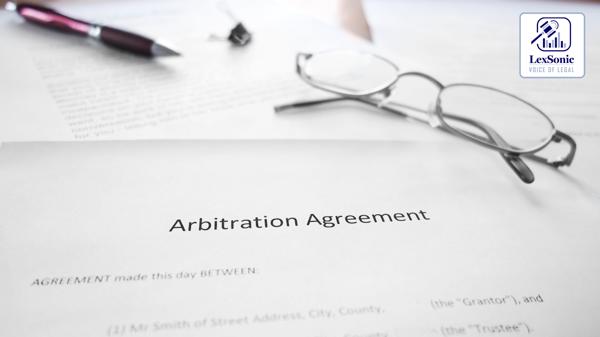Unambiguous Language Necessary to Bar Pendente Lite Interest Under 1940 Act: Supreme Court.
02 April 2025
Arbitration Law >> Business & Commercial Law | Civil Appeals >> Civil & Consumer Law
The dispute arose from a works contract awarded by the respondent to the appellant in 1988. Clause 22 of the agreement stated that "the contractor shall not be entitled to claim any interest upon any payment, any arrears or upon any balance, which may be found due to him at any time." Following disputes, the matter was referred to arbitration, and the arbitrator awarded a sum of Rs. 1,78,17,146 in favour of the appellant, along with 15% per annum interest on all dues from the date the arbitrator entered reference (December 18, 1991) until payment or the date of the decree.

The respondent challenged the award, and the District Judge set aside the interest awarded by the arbitrator, instead granting 9% simple interest on the principal sum from the date of the order until payment. This modification was upheld by the High Court, leading to the present appeal before the Supreme Court.
The primary issue before the Supreme Court was whether Clause 22 of the contract constituted an express bar on the arbitrator's power to grant pendente lite interest under the 1940 Act.
Under the 1940 Act, the court emphasized that a stricter interpretation is adopted. To bar an arbitrator from awarding interest, the contractual clause must clearly and expressly prohibit interest in the event of disputes, differences, misunderstandings, or delays in payment. A general clause merely stating that no interest shall be payable on amounts due under the contract is insufficient to oust the arbitrator's power to grant pendente lite interest.
Addressing the respondent's argument that Reliance Cellulose relied on a decision that was later doubted, the Supreme Court clarified that Reliance Cellulose undertook a comprehensive analysis of the case law, including the subsequent clarifications, before laying down its legal position.
Considering the long pendency of the matter since the arbitrator's reference in 1991, the award in 1995, and the subsequent litigation, along with the amounts already paid by the respondent including post-award interest, the Supreme Court deemed it appropriate to modify the pendente lite interest rate. Instead of the 15% granted by the arbitrator, the court directed the respondent to pay 9% pendente lite interest on the arbitral sum from December 18, 1991, until March 7, 1995 (the date of the arbitral award), within a period of 60 days. The court noted that under the 1940 Act, the court's power to modify an award is broader than under Section 34 of the 1996 Act.
This ruling serves as a crucial reminder of the importance of precise and unambiguous language in contractual clauses seeking to restrict an arbitrator's power to award interest, particularly under the Arbitration Act, 1940. General prohibitions on interest on contractual payments will not automatically extend to bar interest during the arbitration period when disputes arise.
Section 34, Arbitration and Conciliation Act - 1996
Arbitration and Conciliation Act, 1996
